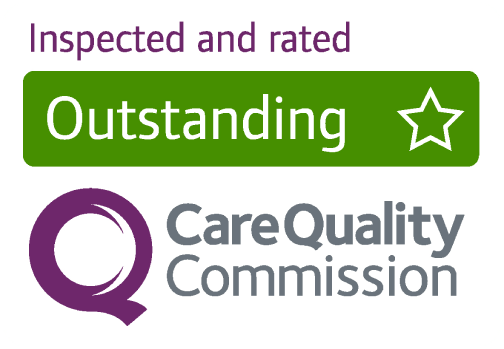
9 October 2023
Tips to get pregnant after miscarriage
A miscarriage is the loss of a pregnancy before 24 weeks, with most miscarriages occurring during the first 12 weeks of pregnancy.
Miscarriages are rarely discussed but unfortunately are a common part of the journey many couples experience on the path to starting a family. Despite affecting one in five pregnancies, many couples feel ashamed and guilty following the miscarriage.
Here, leading fertility expert Dr Venkat, Director of the Harley Street Fertility Clinic, explains why it occurs, when to try again, and offers some top tips for a successful pregnancy after a miscarriage.
Frequently asked questions about pregnancy after a miscarriage
Why do miscarriages happen?
A:There are many reasons why a woman may miscarry, but overwhelmingly the majority occur due to chromosomal abnormalities in the embryothat has implanted.
Although these abnormalities can stem from either the sperm or the egg, they tend to come from the egg rather than sperm. Eggs are just much more vulnerable given the fact that they have been lying dormant but growing fragile in the ovaries for decades, while sperm is made fresh continuously.

Will it happen again?
A:More than 85 percent of women who miscarry can get pregnant again and give birth to healthy babies. However, the anxiety of it happening again can be a very real concern, so it's important to have coping strategies for combating anxiety after a miscarriage.
I think it’s important for my patients to focus on self-calming techniques, meditation, and writing down and working through negative thoughts.
How long should I leave it to try again?
A:Each case should be treated uniquely.When you decide you want to try again is dependent on many factors.
In circumstances such as a molar pregnancy or ectopic pregnancy, a patient may be advised to wait a little bit longer before trying to get pregnant. Many doctors advise waiting until you have had at least one period after your miscarriage before trying again, as this makes it easier to calculate the dates in the next pregnancy.
This doesn’t mean you are more likely to miscarry if you do conceive before then. There is even some evidence that conceiving in the first six months after a miscarriage lowers your risk of miscarriage next time. In most cases, you and your partner are the best judges of when to try again.
How long does it take to ovulate and get your period after a miscarriage?
A:The actual loss itself is usually accompanied by uterine bleeding, but that is not really what we call a “period”; it's just your uterus trying to clear itself out.
Your first real period after a miscarriage will occur about two weeks after the first ovulation you experience after the pregnancy loss.If you have a lot of BhCG in your system, your ovulation could be delayed significantly until it drops closer to zero. But if you have a very early loss, with very low BhCG levels, then you may not even be aware of being pregnant, as you may get a period nearly on time.
Could I be five weeks pregnant after miscarriage two months ago?
A:Women can ovulate as early as two weeks following a loss and, if sexually active at that point, they can become pregnant again that quickly.
However, it is important to refrain after a miscarriage, when the blood pregnancy hormone in your system is back down to zero. It is the only real way to make sure that there is no residual pregnancy tissue left in the uterus.
Sometimes small remnants can remain, and if they do remain, they can lead to future issues like diminished fertility or abnormal uterine bleeding. However, if your blood pregnancy hormone hits zero, and you feel physically well, then there is no reason why you shouldn’t try to conceive again.

What if more than one miscarriage is experienced?
A:If a woman has two or three miscarriages in a row, this is known as a recurrent spontaneous miscarriage. It is vital that this is investigated by a gynaecologist to solve the root of the problem.
If after vigorous testing into a patient’s health, the results are negative, then the chances of your next pregnancy being successful are fairly high. If, however, you are diagnosed with a problem, then it is more than likely that your next pregnancy will miscarry unless you seek treatment.
Top tips for a successful pregnancy after a miscarriage
What lifestyle changes can improve my chances of conceiving after a miscarriage?
After a miscarriage, adopting healthy habits can support fertility and prepare your body for pregnancy. Consider the following:
- Take prenatal vitamins: Start prenatal vitamins (folic acid 400 µg, vitamin D 10 µg daily) before trying again.
- Eat healthily: Choose a balanced diet with fruits, vegetables, whole grains, lean proteins, and healthy fats.
- Maintain a healthy weight: Aim for a healthy BMI. Weight extremes can disrupt fertility.
- Avoid harmful substances: Quit smoking, avoid alcohol and drugs, and limit caffeine to 200 mg daily.
- Exercise moderately: Engage in gentle exercises (walking, yoga, cycling) regularly.
- Manage stress and sleep: Get 7-8 hours of quality sleep and manage medical conditions.
Does stress affect my chances of getting pregnant again, and how can I cope?
Normal stress doesn’t usually prevent pregnancy, but high stress can affect menstrual cycles and libido. Coping strategies include:
- Allowingfor emotional recovery: Give yourself time to grieve and heal emotionally.
- Communicating and seeking support: Talk openly with your partner, friends, family, or support groups.
- Practising relaxation: Use mindfulness, meditation, yoga, journaling, or gentle exercise.
- Seeking professional help: Consider counselling or therapy if feelings become overwhelming.

How can my male partner help improve our chances of conceiving again?
Fertility is a joint effort. Here’s how your male partner can help:
- Adopt healthy habits: Quit smoking, limit alcohol, avoid drugs.
- Maintain healthy weight and diet: Eat nutritious meals and exercise regularly.
- Protect sperm health: Avoid excessive heat (hot tubs, tight clothing) and exposure to harmful chemicals.
- Consider sperm testing: If concerned or having trouble conceiving, a semen analysis can provide reassurance.
- Provide emotional support: Be patient, communicate openly, and maintain regular intimacy.
When should we seek medical advice after a miscarriage?
Seek medical advice if:
- You are under 35 and not pregnant after one year of trying.
- You are over 35 and not pregnant after six months.
- You are over 40 or have known fertility issues (PCOS, endometriosis), consider earlier consultation.
- You have experienced two or more miscarriages.
- You are experiencing high anxiety or concerns; a medical check-up can offer reassurance.
Early consultation can identify and treat issues promptly, increasing your chances of a healthy pregnancy.
At Harley Street Fertility Clinic, we are committed to informing our patients about miscarriages. We hold informative Instagram sessions in collaboration with our partners to discuss topics such as infertility after miscarriage and baby loss.
More information about miscarriages and recurrent implantation failure can be found in our webinar and educational podcast.
To learn more about miscarriages, the Miscarriage Association has useful and actionable information on the topic.

Let's Talk About What's Right for You
Book a free 15-minute consultation with our New Patient Team. We'll help you understand what's relevant to you and what to expect so you can move forward with confidence.
- Confidential
- No Obligation
- Explore Fertility Options
*Want to book a Doctor's appointment? Get in touch:






.jpg?upsize=true&upscale=true&width=400&height=200&name=Untitled%20design%20(1).jpg)

